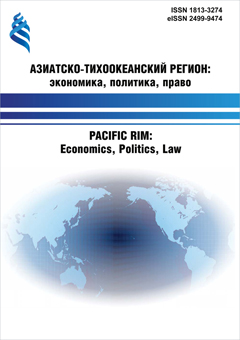About the legal status of holdings in Russian Federation
DOI:
https://doi.org/10.24866/1813-3274/2024-4/139-148Keywords:
holding, holding company, group of companies, group of persons, holding activities, related entities, subsidiary, main companyAbstract
The peculiarities of the historical development of Russia gave rise to the emergence of special subjects of legal relations, which are interconnected legally and economically legal entities, controlled and managed in a certain way. Currently in Russia, most large businesses are represented by associations of legal entities, which are referred to as holdings. Meanwhile, the current civil legislation does not directly determine the existence of such an entity as a holding. At the same time, other branches of legislation (antimonopoly, tax, administrative, etc.) certain groups of subjects of legal relations are referred to (for the purpose of appropriate regulation) as groups of persons, related persons, controlling persons, etc. Civil legislation only partly regulates the status of holding companies, defining the features of affiliated relations, relations of subsidiaries and main companies, controlled entities. At the same time, developing economic legal relations often require the resolution of disputes in the courts, which also have an ambiguous approach to understanding the legal status of the ‘holding’. There is also no single position in the doctrine regarding understanding the status of a holding. In this connection, there is a need to determine the approaches formed by the legislator, law enforcer and doctrine regarding the status of the holding, as well as the distinction between the category ‘holding’ and related categories (for example, ‘holding company’, ‘group of companies’, etc.).
Downloads
References
Суханов Е.А. Акционерные общества и другие юридические лица в новом гражданском законодательстве // Хозяйство и право. 1997. № 1. С. 147–159.
Коваленко Н.Ю. Холдинг как гражданско-правовая модель взаимодействия хозяйствующих субъектов: автореф. дис. … канд. юрид. наук. Ростов-на-Дону, 2010. 31 с.
Иванюк А.В. Правовые проблемы создания холдинга: на примере железнодорожного транспорта: автореф. дис. … канд. юрид. наук. М., 2005. 28 с.
Ревинская Л.Ю. О различиях понятий «холдинг», «холдинговая компания», «холдинг-компания» // Евразийский Союз Ученых (ЕСУ). 2015. № 4 (13). С. 156–158.
Власов Ю.Н., Жуков А.П. Виртуальные холдинги: вчера, сегодня, завтра // Вестник МГЭИ. 2022. № 1. С. 118–130.
Настенко Д.А. К вопросу определения понятия «группа компаний» // Международный бухгалтерский учет. 2013. № 20 (266). С. 60–64.
Чумичев И.А. Холдинг как объект управления: автореф. дис. … канд. юрид. наук. М., 2005. 32 с.
Корпоративное право: учебный курс / отв. ред. И.С. Шиткина. Специально для системы «Гарант», 2011 // Справочно-правовая система «Гарант».
Downloads
Published
Issue
Section
License
Copyright (c) 2024 Екатерина Владимировна Лебедева

This work is licensed under a Creative Commons Attribution-NonCommercial-NoDerivatives 4.0 International License.


